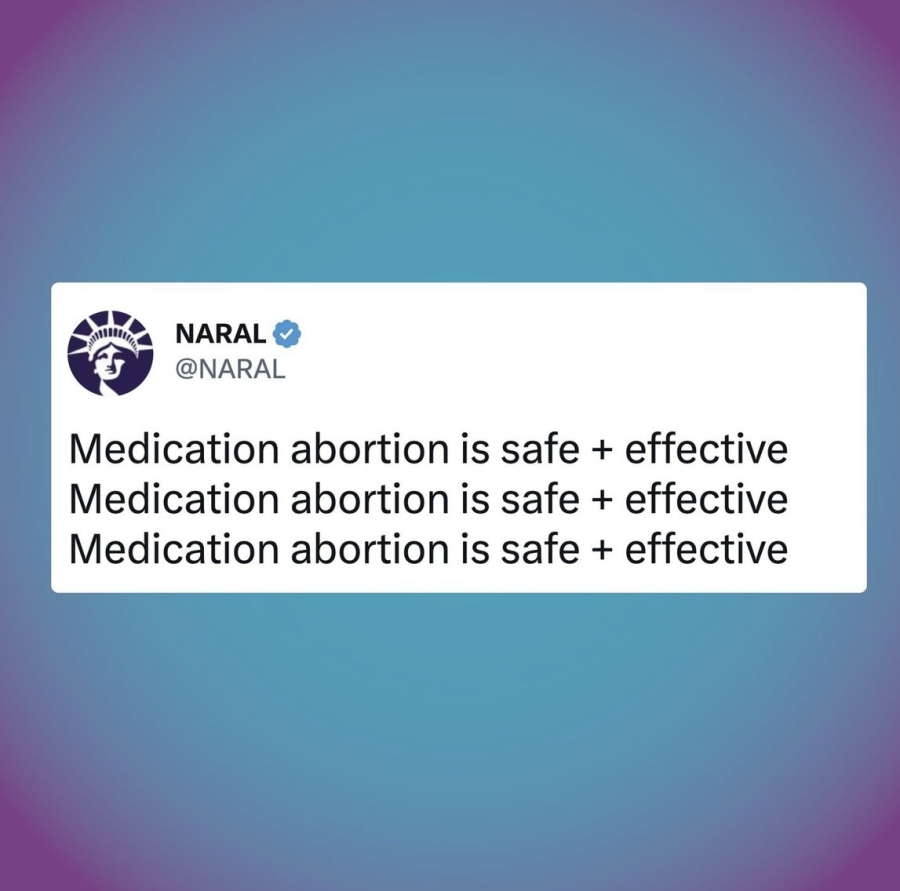Another Threat to Reproductive Rights
Yet another court case will decide women’s reproductive rights. Its consequences will be felt nationwide, but there is something you can do.
The decision of the Alliance for Hippocratic Medicine v. U.S. Food and Drug Administration has serious consequences. It is clear we can not stop advocating for women’s reproductive freedom.
On April 7, 2023, Judge Matthew Kacsmaryk, a U.S. District Judge in Texas, ruled against the Food and Drug Administration’s (F.D.A.) approval of mifepristone, a safe and effective drug used for medical abortions. This means that access to the pill would be removed nationwide, even in states where abortion is protected like California.
Women across the nation lost their right to bodily autonomy on June 24, 2022, when Roe v. Wade was overturned by the Supreme Court. Immediately, due to trigger laws, abortion was banned in 13 states. As of right now, 18 states have restrictions on abortions. With this month’s ruling, once again, women’s right to choose was being decided by the court, this time on a much larger scale. And there are things you can do about it.
Judge Kacsmaryk ruled in favor of Alliance for Hippocratic Medicine (an anti-abortion advocacy coalition); the American Association of Pro-Life Obstetricians and Gynecologists; the American College of Pediatricians; the Christian Medical and Dental Associations, as well as three individual doctors.
But, the F.D.A. acted quickly and appealed to the Fifth Circuit Court of Appeals. Justice Samuel Alito Jr. granted a partial stay for the drug until Friday night, while the Supreme Court considers the Biden Administration’s emergency request to maintain the F.D.A.’s approval.
In California, the right to abortion is heavily protected to the extent that our state has even become a safe haven for those seeking abortions. Yet, women are continuing to work to keep it that way.
For example, the California Legislative Women’s Caucus and the California Future of Abortion Council (FAB) just announced a bill package, with 17 pieces of legislation, protecting abortion rights in March 2023. These will help solidify California as an abortion safe haven. However, the mifepristone ruling affects the entire country.
Organizations like NARAL Pro-Choice America are backing initiatives, like the Women’s Health Protection Act, to help protect reproductive rights across the country. NARAL has “3 branches: a 510c3, a PAC, and a lobby. We mobilize voters, support and contribute to pro-reproductive justice candidates, co-sponsor bills to expand and protect abortion access, and lobby politicians to pass such initiatives,” said Ms. Lorraine Esgate, chair of the San Diego Action Council for NARAL Pro-Choice California.
In California, NARAL is working with the Women’s Reproductive Rights Assistance Project (WRRAP), to raise money for WRRAP. WRRAP funds abortions through certified clinics. The organizations are planning to screen The Janes, a film about women in Chicago who performed 11,000 abortions from 1968 till the decision of Roe v. Wade in 1973, explained Ms. Esgate.
Pill-based abortions account for ½ of all abortions, and according to the New York Times, mifepristone is the most effective and safe drug for it. When used within 10 weeks, it has 99.6 percent effectiveness. There is a 0.04 percent chance that there will be major complications, and a 0.00064 percent mortality rate, according to the Kaiser Family Foundation. The drug has been approved for 23 years.
Judge Kacsmaryk’s decision has serious consequences. But mifepristone “is still available through mail in every single state, as of today. [And] it can last in your medicine cabinet for two years,” said Ms. Esgate.
If mifepristone is banned, doctors will need to rely on another drug for abortions, misoprostol, which is often used with mifepristone. Doctors would need to use a higher dosage of misoprostol which is less effective and has a higher chance of causing side effects.
Additionally, the ruling will threaten the approval of all F.D.A.-approved medications, such as hormone blockers, HIV and AIDS medications, and vaccines, according to the New York Times.
Now, more than ever, it is important to get involved. Ms. Esgate explained, “The mifepristone ban is a tragic example of how quickly things can change and demonstrates how vital it is to get involved in whatever capacity you can.” She added, “We simply can’t predict what reproductive rights will look like in our country, and yes, in every state, even California. We cannot be complacent.”

Bella Gallus is a senior and the Managing Editor for The Tower. Bella relies on her Spotify playlists, carefully curated for each of her moods, and her...







